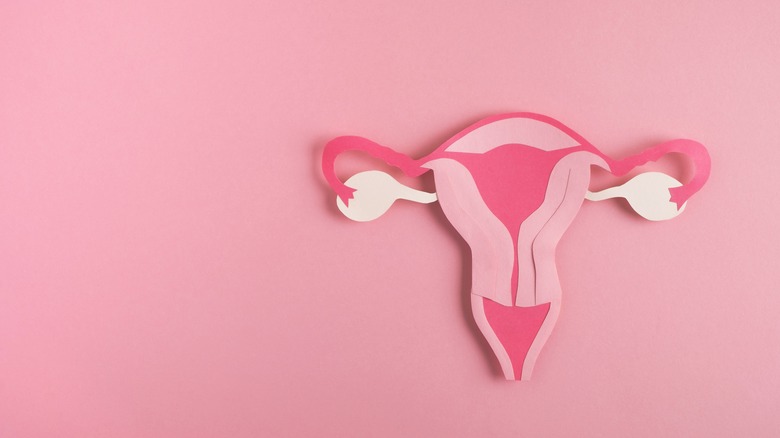How A Common Chemical Can Increase Your Uterine Fibroid Risks
Almost every week, it seems as if scientists discover that a product that millions of women use is actually extremely harmful to our health. From cancer-causing baby powder to toxic chemicals that exist in menstrual products, products that have been marketed towards women or are necessary for our well-being often harm women more than they help them, reports Verywell Health.
In recent times, studies have shown that hair products such as dry shampoo contain harmful chemicals that can cause certain blood cancers, according to the Los Angeles Times. Research even shows that hair relaxers can increase the risk of breast cancer, per PBS, although Black women have known that lye relaxers are dangerous for their health for ages.
The phenomenon of women knowing what is bad for our health before science acknowledges it is unfortunately too common. This occurs due to the lack of research or care for issues that affect women and those with female anatomy that has persisted in science for years, says Fortune.
Now, new research shows that a common chemical found in many products can increase the risk of uterine fibroids in women.
What chemical increases the risk of uterine fibroids?
According to the Mayo Clinic, uterine fibroids are noncancerous tumors on and in the uterus that can cause symptoms of heavy menstrual bleeding, infertility, constant urination, pain during sex, and back pain. However, they don't always cause symptoms. According to a study published in the Proceedings of the National Academy of Sciences, chemicals found in plastics called phthalates can potentially cause uterine fibroids.
Harvard School of Public Health states that phthalates are a family of compounds that are found in many household items, such as food packaging, shampoo, detergents, and shower curtains.
The study found high levels of DEHP, a phthalate, in the urine of women who have symptomatic fibroids. After discovering that, the researchers examined primary cells in the fibroids of the women. They observed the existence of MEHHP, which comes from a breakdown of DEHP. This breakdown led to tumor growth, according to the research.
Due to the fact that there are so many types of phthalates in everyday items, they're hard to ban. WebMD explains that there are multiple kinds of phthalates, such as BBP, DEHP, and DiDP. One of the authors of the study, Dr. Serdar Bulun, told U.S. News to stay away from plastic products and containers as much as possible, opting for glass instead. He also recommends staying away from products containing PVC.
According to UCSF Health, routine check-ups with a gynecologist will help you to identify fibroids and determine whether they are a risk to your health.

